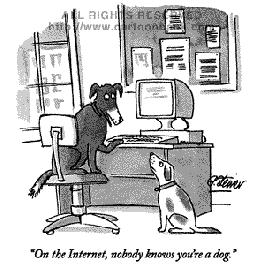“Futures made of virtual insanity
now always seem, to be governed by this love we have
For useless, twisting, our new technology
Oh now there is no sound for we all live underground”~Jamiroquai – Virtual Insanity
On the one hand, I pride myself on being part of the so-called Generation Y (aka the Millennials): the generation that grew up with computers and Internet, a generation without boundaries. This limitless character of the World Wide Web provides us with ways in which we can reach out to and communicate with an enormous amount of people. Social networks and instant messaging (IM) services make sure we can stay in touch 24/7. Do you feel the ‘but’ coming?
About six weeks ago our school was visited by drones of new first year pupils, all in the 11-13 years of age range. Right before the summer starts, they get the chance to meet their new fellow classmates and teachers, and to take a look around the place they will be frequenting for four years five days a week. What struck me was the amount of children walking through our main entryway holding their BlackBerries and iPhones, typing away on PingChat! or WhatsApp. Not looking up, they seemed to be effortlessly making their ways to their designated classrooms. At these moments I don’t really feel part of this Generation Y. If I were in a similar situation, I would look around carefully analysing where I was, where I had to go, and with whom. Moreover, I wonder who they are ‘talking’ to and what about, that it cannot wait until after the introduction.
It is almost expected by the kids these days that you can be reached 24/7 and that you reply immediately, without delay. I lost count of the times I stood in line at the cash register at the local supermarket, watching how the person in front of me was completely ignoring the person behind the register whilst happily chatting away on their mobile phone. A couple of times I have presented my pupils with this situation. I was surprised to find that where I found this behavior incredibly rude, they thought of it as ordinary.
Throughout the school year, arguments that get out of hand at school almost always originated in the Cyberworld. The home used to be a safe place for a child to go to when the school wasn’t. Now, children come home, turn on their computers and are bombarded with uncouth propositions as well as bullying and name-calling. The scary part is: a lot of parents don’t even know that this is going on, often not understanding the other life their child is leading: the virtual one; the one where it’s easy to be anonymous.

The New Yorker July 5, 1993 by Peter Steiner
The older generations like to see this new generation as experts in the field of Cyberspace. Of course they are, but they’re also naive and often can’t overlook the consequences of their online actions. In these four years I’ve been teaching at secondary school, it has happened more than once that a pupil posted nude pictures on the Internet or sent them via IM, resulting in a wrecking tsunami of social consequences. Because everyone is connected 24/7 it’s only a matter of seconds before the entire school (and often the district) has viewed these images. Where most of the children delete these pictures after having been explained what the consequences are not only for the ‘victim’ but for themselves as facilitators as well, some will keep it somewhere and you’ll never know when these pictures might pop up again.
Just a couple of months ago on a Wednesday morning one of my pupils enthusiastically told me to look at his phone. A mere second later I realized I was looking at a nude photograph of one of the pupils at our school (who I luckily did not teach a class to). I went to our head of department and told him what I saw and he took action. Since the victim had posted this picture himself, he was not pitied but shunned and did not dare to come back to school for about a month. Welcome to the life of a secondary school student.
Can or should school interfere? A lot of the Internet drama takes place outside of school. However, the live battles are fought within the school setting. A lot of the times it’s a difficult call to make. Of course, the school is a place where the children are prepared for life in the real world, which now includes the virtual world. So, what can we educators do to make our pupils responsible Cybercitizens?
- Realize that, to our pupils, the virtual world is as real as the non-virtual one.
- Talk openly about on-line activities, in a non-judgemental manner. In my experience, the best way to accomplish this is to make them the experts.
- Make sure your own computer and web skills are up to date. Get your own account on a social networking page and see what’s going on there.
- Educate both pupils and their parents on how to make certain information private on social networking profiles, and how to save IM history.
- Impress it on everyone’s mind that once something is out there on the Internet, you’ll never know when it might pop up again. So, be careful of what you post on the Web.
 Featured on EcoPressed
Environmental Watchdog Report Calls Apple To Task For Violations
Featured on EcoPressed
Environmental Watchdog Report Calls Apple To Task For Violations
